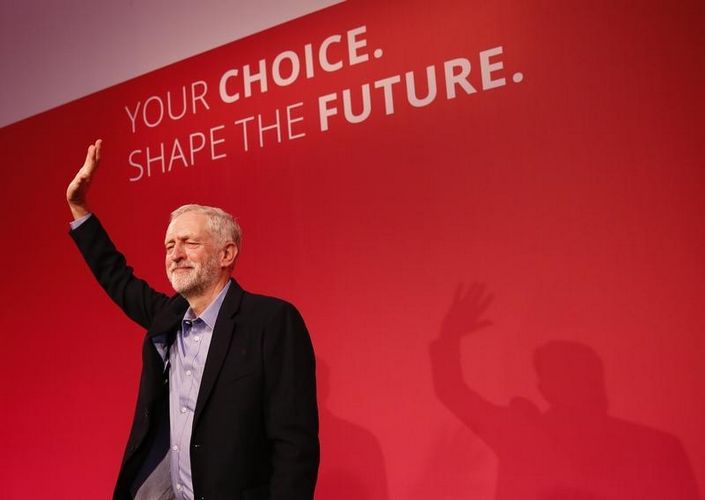There used to be a rather smart slogan which the FT adopted on all its poster adverts which simply read “We live in financial times”. I guess it is pretty hard not to look out of the window today and not to conclude that we now live in much more political times.
As if the European Union had not been under enough stress through the sovereign debt crisis – those were financial times – it is now faced with a further and in some respect more significant challenge by way of the rise of sovereignty issues brought about by the ongoing and currently insolvable looking migrant/refugee issue. I noted last week that Germany had chosen to lead from the front, only to find that nobody had followed it. It might be wrong to suggest that it is back-pedalling but, from where I am sitting it looks as though it is… back-pedalling
Germany is in many ways to blame for it itself suspended the provisions of the Dublin Agreement, albeit for strong and wholly justifiable humanitarian reasons. The problem seems to be, as with the eurozone crisis, that the idealistic principles which underpinned the original agreement began to fail when properly stressed and where a single sovereign government can deal with failing principles by emergency laws, the EU lacks any single authority which can create binding, top-down decisions.
As we stand, we are facing a problem without a solution and many of the more euro-sceptical elements are wondering whether this second massive and fundamental challenge to the structure of the EU might not be the one which blows it apart.
I am not prepared to bet any money either way. The “political will” was used to overcome the financial crisis but how can political will be used to flatten a political crisis. Yes, we live in political times.
Don’t fear the beard, just now
Meanwhile, the UK can now boast a left-of-left-of-centre leader of the formerly right-of-left-of-centre Labour Party. The British press is obsessed with Jeremy Corbyn today so UK readers might choose to stop here.
In many respects, Jeremy Corbyn is an anachronism or at least he is to those amongst us who lived through the 1970s and who saw the failure of the attempt to create a centrally-controlled economy. Much has been written about the conundrum as to how he, who initially couldn’t command enough sponsorship to stand in the leadership election and who was generously backed by opponents, simply in order to broaden the debate, now finds himself as Leader of Her Majesty’s Loyal Opposition.
I have read a lot of nonsense on the subject. Corbyn himself acknowledges that he was anointed by the young who, in their droves, paid the £3 required in order to take part in the vote. These are, however, educated, urban, multicultural youngsters who understand each other but who are wildly remote from the majority of absent voters who will need to mobilised if Labour is to regain power.
It is a truism of politics that the best and finest of policies proposed and ideals held by the opposition are not worth a toot until said opposition is elected to office. In the case of the UK, the next elections are not due until May 2020 and much water will flow past the Houses of Parliament on the Thames before then.
Many Tories are delighted at the prospect of the Labour party tearing itself to pieces but they may, if Corbyn is still in office, eat their words in 2020. One major global economic down-turn, whether of the Cameron government’s making or not, could see the incumbent party swept from office.
For the moment, Britain does not know what to make of this bearded man, perhaps one of the most uncompromising left-wingers in the House, who in his 32 years in parliament has set a record for rebelling against his own party’s whip by voting out of line on around 500 occasions. Is this, one must duly ask, the last hurrah for the “Old Left” or is it the beginning of a revival of politics of wealth distribution over politics of wealth creation. The politics of handing it out before it was earned failed dismally in the 1960s and 1970s. Could it be time try again? I don’t think so but I might of course be wrong.
What will be fun to watch of course, will be the way in which this country deals with ideological politics. France is a country where ideology comes first and pragmatism second. The British people are not really used to that which to some extent explains the rout of Labour in the May elections. Labour now is looking at “If at first you don’t succeed, double the stakes and try again”. It was the late Harold Wilson, Labour Prime Minister in the 1960s and 70s who coined the phrase “A week is a long time in politics”. Four and a half year is a lot, lot longer. Thus, from an investment perspective, the election of Jeremy Corbyn and his appointments to the shadow cabinet, especially that of the equally, if not even more, left-wing John McDonald as Shadow Chancellor, are strictly non-events.
Just get on with it…
Finally, the FOMC meeting on Thursday which is of course not a non-event. I won’t expand on Chinese growth and Shanghai stock prices and on how these might or might not influence the Committee’s decision.
I still back the FOMC to tighten this week and am only left wondering whether Madame Yellen will have the courage to subsequently deliver and unequivocal statement of why or why not and what happens next and why.
We have no need of further shilly-shallying; if the Fed wants to lead it is high time that it got on with it.
